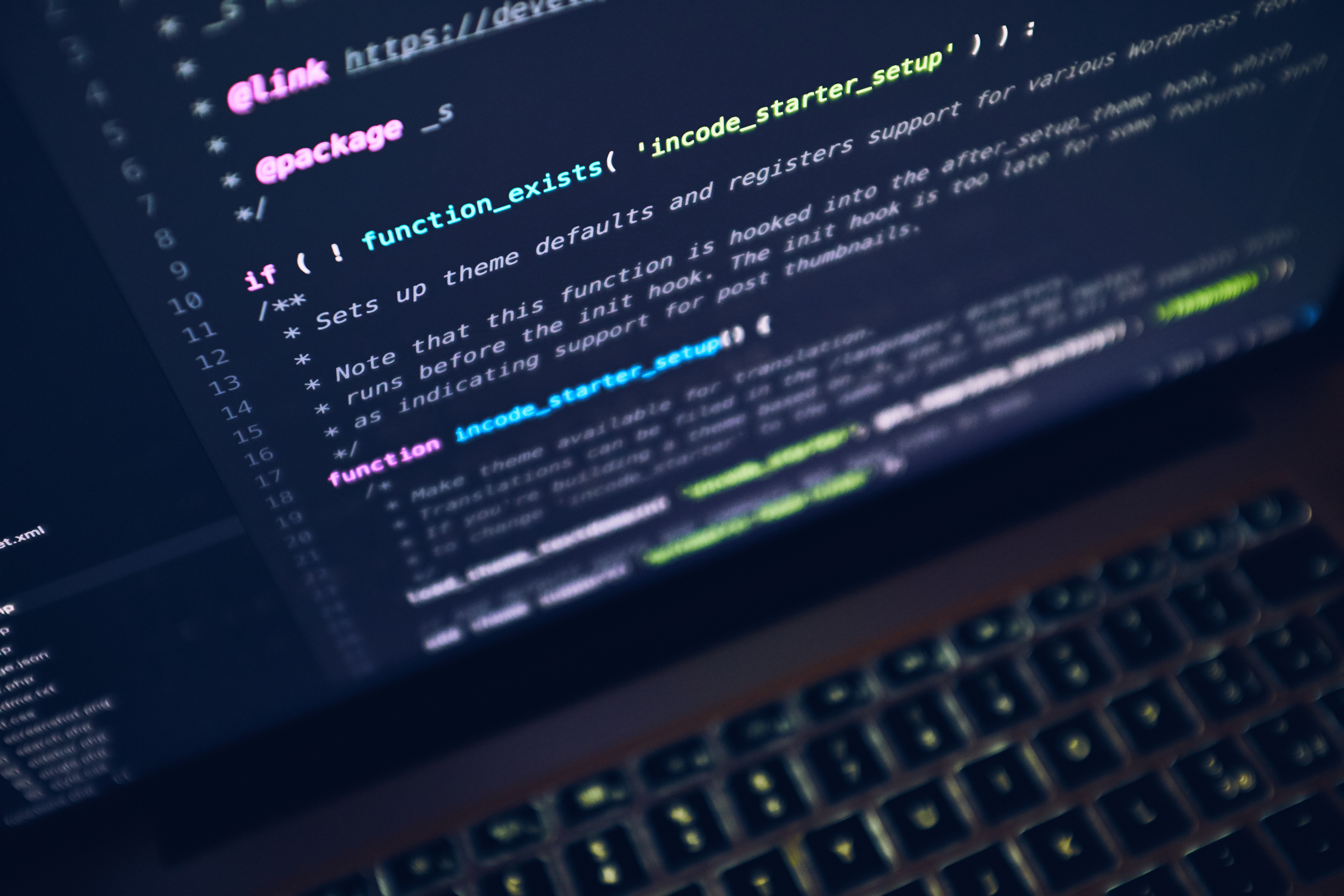The Comprehensive Guide to IB Computer Science
Introduction
Welcome to the comprehensive guide to IB Computer Science! The International Baccalaureate (IB) Computer Science course offers a fascinating exploration of computer systems, programming, and the impact of technology on society. In this guide, we will provide you with a detailed overview of the IB Computer Science course, exam format, key topics, and tips to excel in the course and achieve success on the IB exam.
Overview of IB Computer Science
The IB Computer Science course provides a comprehensive understanding of computer systems, programming, and the societal implications of technology. Through the course, students will explore the fundamental concepts of computer science, develop computational thinking skills, and engage in practical programming activities.
Exam Format
The IB Computer Science exam consists of three main components:
-
Internal Assessment (IA): The IA is a significant component of the course and accounts for a substantial portion of your final grade. It involves the completion of a programming project, along with documentation and evaluation.
-
External Assessment (Paper 1): This section assesses your knowledge and understanding of computer science through a series of short-answer and structured questions. It covers topics such as computer systems, data representation, and algorithms.
-
External Assessment (Paper 2): This section assesses your ability to apply your knowledge and programming skills to solve problems. It includes programming exercises that require you to design, implement, and test programs.
Course Content
The IB Computer Science course covers a range of topics that provide a comprehensive understanding of computer systems and programming. Some key areas of study include:
-
Computer Systems: Exploring the internal components of computer systems, including processors, memory, storage, and input/output devices. Understanding the organization and architecture of computer systems.
-
Data Representation: Understanding how data is represented and manipulated in computer systems. Topics include binary and hexadecimal number systems, Boolean algebra, and logic gates.
-
Algorithms: Studying algorithms, including sorting and searching algorithms, data structures, and computational complexity. Developing algorithmic thinking skills to solve problems efficiently.
-
Programming: Learning a programming language such as Java or Python. Understanding programming concepts, data types, control structures, functions, and object-oriented programming principles.
-
Social and Ethical Implications: Exploring the societal impact of computer science, including issues related to privacy, security, intellectual property, and the ethical use of technology.
Skills and Proficiencies
The IB Computer Science course aims to develop several key skills and proficiencies, including:
-
Computational Thinking: Developing the ability to break down complex problems into smaller, manageable parts and solve them using algorithms and programming techniques.
-
Programming Skills: Acquiring proficiency in a programming language, understanding code syntax, debugging, and developing efficient and effective programs.
-
Problem-Solving: Applying computational thinking and programming skills to analyze problems, design solutions, and implement them using appropriate algorithms and data structures.
-
Data Analysis: Understanding how to collect, organize, and analyze data using programming techniques and tools.
-
Critical Thinking: Evaluating the strengths and weaknesses of different computational solutions, considering trade-offs, and making informed decisions.
-
Collaboration: Collaborating with peers on programming projects, engaging in code reviews, providing feedback, and working effectively in teams.
Preparing for the IB Exam
To excel in the IB Computer Science exam, consider the following strategies:
-
Review the IB Computer Science Guide: Familiarize yourself with the IB Computer Science guide provided by the IB. It contains detailed information about the course objectives, assessment criteria, and expectations for the IA and exam components.
-
Engage in Programming Projects: Actively participate in programming projects to develop your programming skills, problem-solving abilities, and understanding of key concepts. Practice implementing algorithms, designing data structures, and testing your programs.
-
Practice Past Exam Questions: Review past exam questions to familiarize yourself with the exam format and types of questions asked. Practice solving these questions under timed conditions to improve your time management and exam technique.
-
Seek Feedback and Revision: Seek feedback from your teacher or supervisor on your programming projects and IA. Revise and improve your work based on the feedback received to enhance your understanding and performance.
-
Utilize Available Resources: Make use of textbooks, online resources, programming tutorials, and practice exercises to deepen your understanding of programming concepts, algorithms, and data structures.
-
Develop a Study Plan: Create a study plan that outlines specific topics to review, practice sessions, and mock exams. Dedicate regular study time to reinforce your understanding of key concepts and enhance your programming skills.
Tips for Success
Here are some additional tips to excel in IB Computer Science:
-
Practice Regularly: Dedicate consistent time to practice programming and problem-solving. Regular practice will enhance your coding skills and reinforce your understanding of programming concepts.
-
Debug Effectively: Develop effective debugging skills to identify and resolve programming errors. Use debugging tools and techniques to track down and fix issues in your code.
-
Document Your Work: Maintain thorough documentation of your programming projects and IA. Clear and well-organized documentation will help you understand and explain your code effectively.
-
Collaborate with Peers: Engage in collaborative programming projects with your peers. Collaborating allows you to learn from others, exchange ideas, and improve your programming skills through code reviews and discussions.
-
Stay Updated: Keep up with advancements in computer science, programming languages, and emerging technologies. Follow relevant blogs, websites, and forums to stay informed about new developments in the field.
-
Join Coding Competitions: Participate in coding competitions or programming challenges to test your skills, challenge yourself, and gain exposure to a variety of problem-solving scenarios.
FAQs
-
Q: Can I choose any programming language for my IA? A: Yes, you have the flexibility to choose a programming language for your IA. However, it is important to consider the IB's guidelines and ensure that the chosen language supports the requirements of the project and allows you to demonstrate your understanding of programming concepts.
-
Q: How can I improve my programming skills? A: Regular practice is key to improving your programming skills. Engage in programming projects, solve coding problems, and challenge yourself with new programming concepts and techniques. Seek feedback from teachers or mentors to identify areas for improvement and work on strengthening those areas.
-
Q: Are there any recommended resources for studying IB Computer Science? A: Yes, there are several resources available to support your study of IB Computer Science. Some recommended resources include the IB Computer Science guide provided by the IB, textbooks specifically designed for the course, online programming tutorials, and coding platforms that offer practice exercises and coding challenges.
-
Q: How can I improve my time management during the exam? A: Practice time management by solving past exam questions under timed conditions. Allocate time to different sections of the exam based on the marks assigned to each question. Prioritize questions you feel most confident about and ensure you have enough time to attempt all questions.
-
Q: What skills are essential for success in IB Computer Science? A: Essential skills for success in IB Computer Science include computational thinking, programming skills, problem-solving abilities, data analysis, critical thinking, and collaboration. Developing these skills will enable you to excel in your programming projects and perform well in the IB exam.
-
Q: How can I effectively present my programming solutions? A: Effective presentation of programming solutions involves providing clear and concise documentation, including comments in your code to explain your thought process and design choices. Use meaningful variable and function names, organize your code logically, and provide sufficient context to aid understanding.
Conclusion
The IB Computer Science course offers an exciting journey into the world of computer systems, programming, and problem-solving. By following this comprehensive guide, engaging in programming projects, developing key skills, and preparing effectively for the IB exam, you will be well-prepared to succeed in the course and achieve excellent results on the IB Computer Science exam. Embrace the opportunities to explore new programming concepts, challenge yourself, and expand your computational thinking abilities.

 By
By


